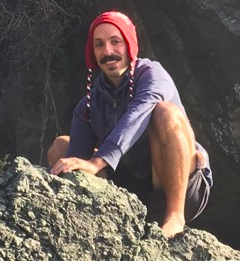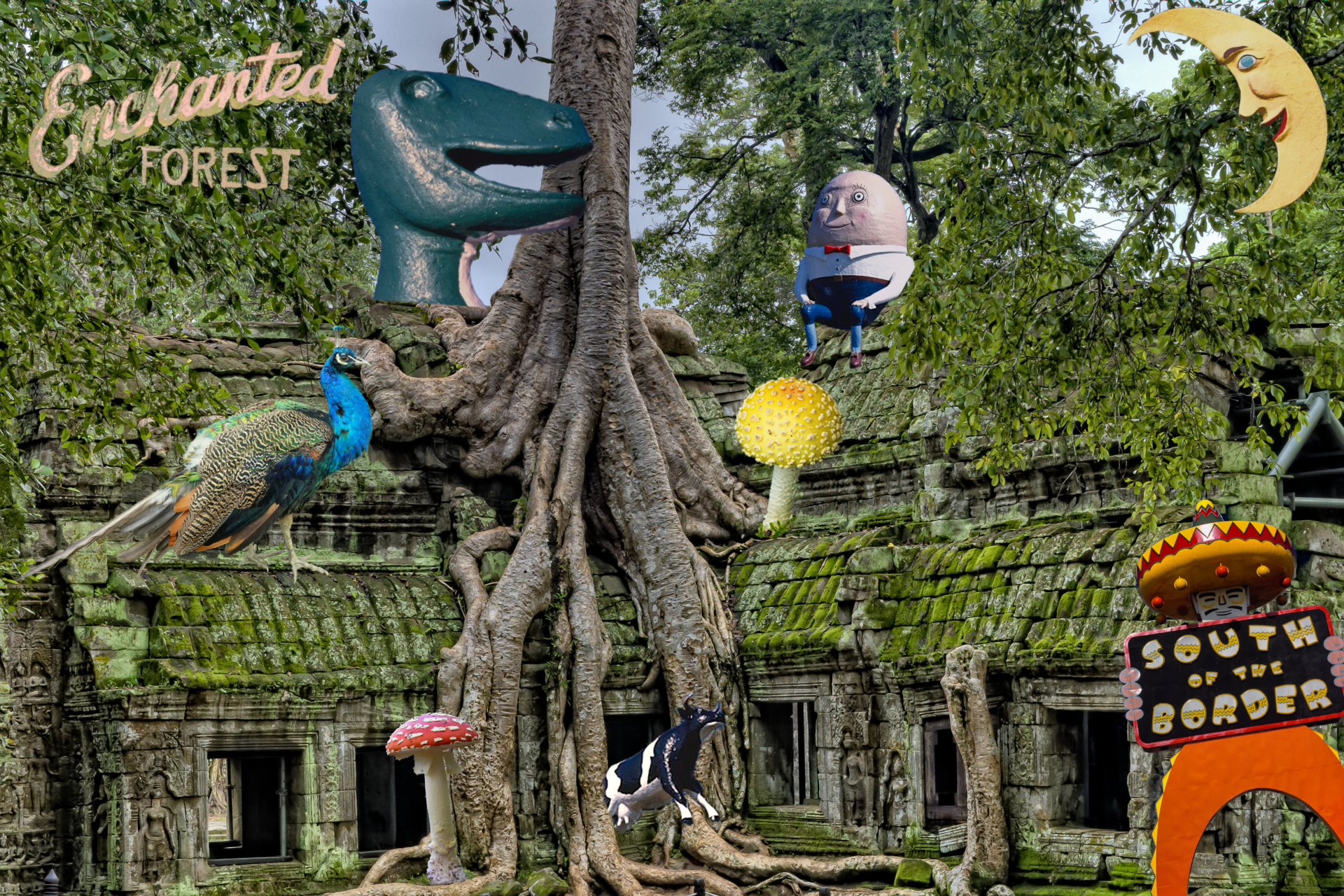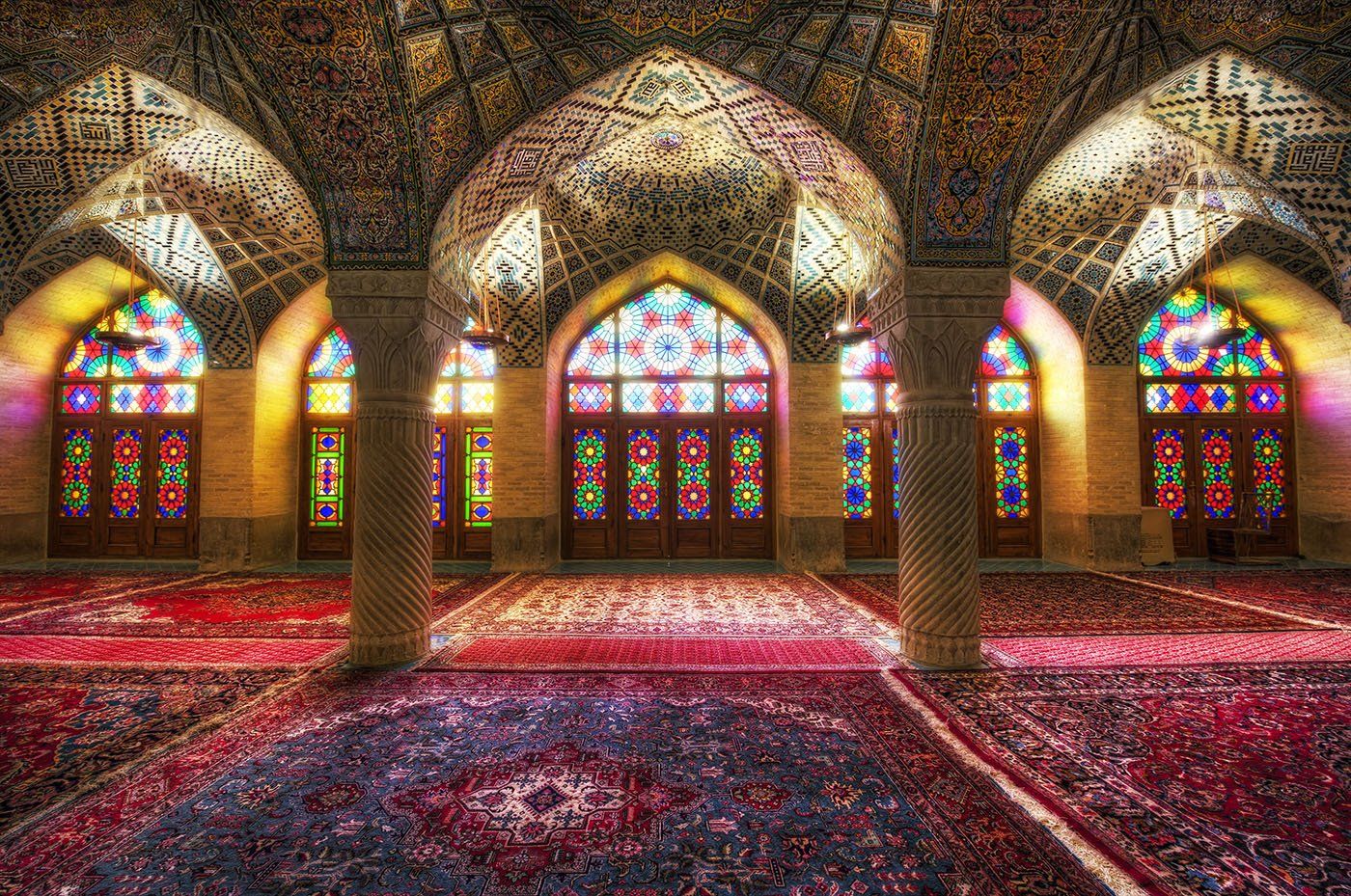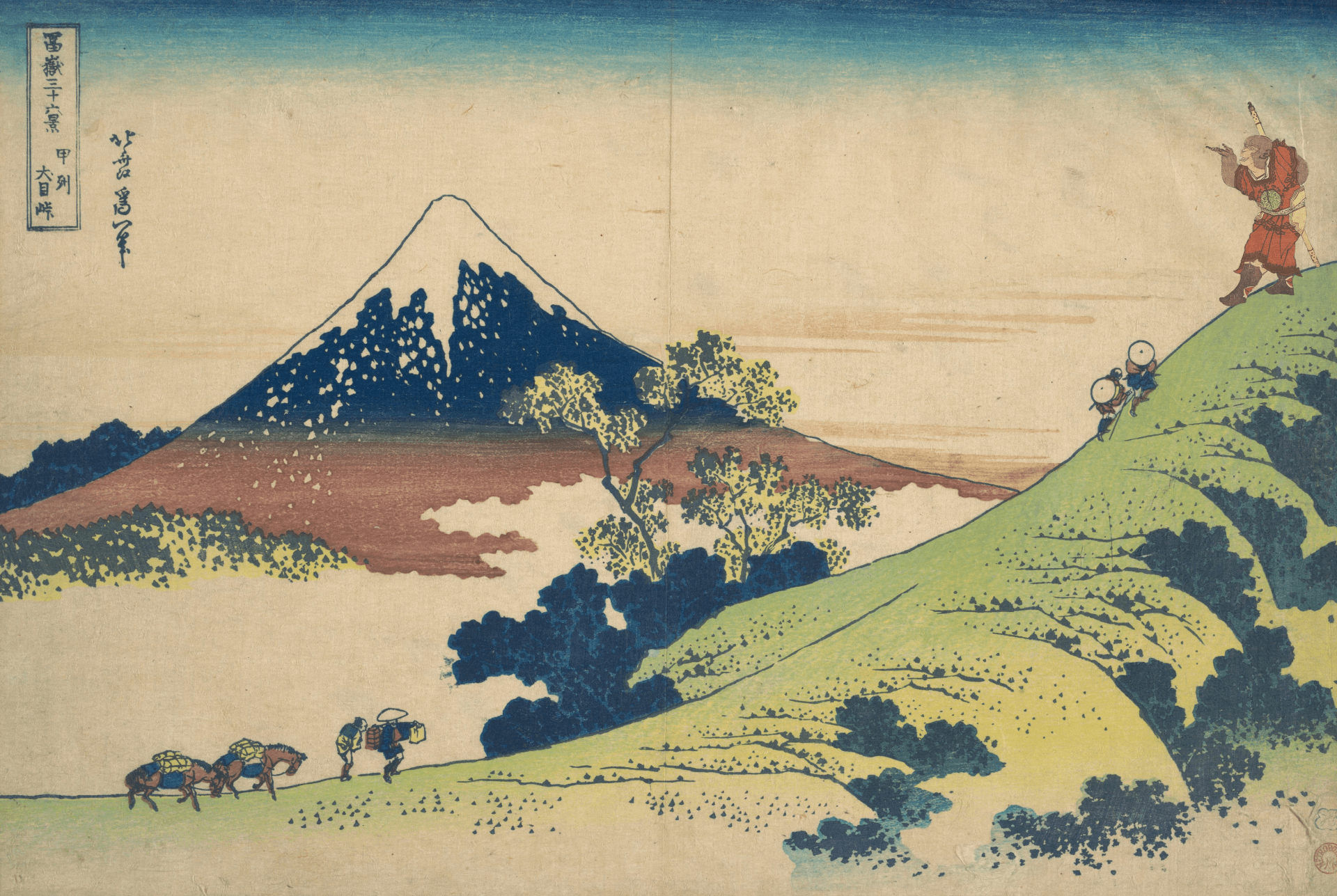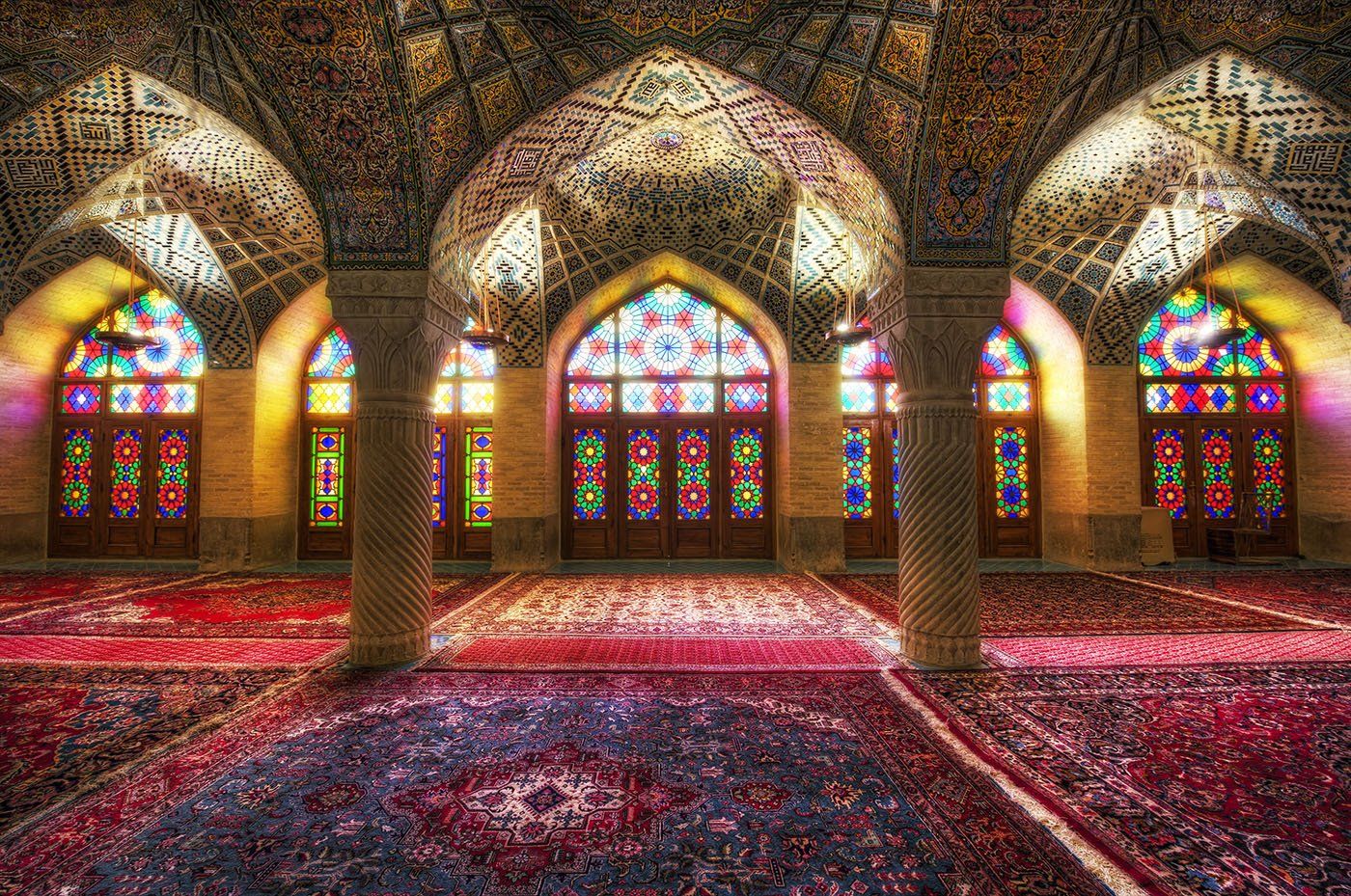
Giving the Tree, Giving the Seed:
Lotfi III
Just the other day, I listened to Davood Azad again, and it occurred to me that I should paint a portrait of him, too.
You know what I mean.
(But if you don't -- I won't question too deeply how you found yourself in these halls, -- then, perhaps, you'd like to take a look at one or two, or all, of these first: Many Masters, Baking with a B, Ebadi, Barkhiz o Biaa, Higher Harmony.)
Though, as always, I wondered, What will I say? and How will I say it?, as always, there was already the kernel of the idea -- the information-bearing, vivifying procreative impression -- floating around in my mind, a conceptual dandelion-seed: not much substance to the eye, but when it touches ground... good luck rooting it up.
As always, I'm not writing as an expert, whether of this music or even of my own inner imaginal landscape; in either case, I'm a bindle-bearing hobo wandering by winding ways through both.
And again as always, I never let facts get in the way of truth.
Of course, as this hobo has learned over many train-car nights where bindle was bolster and impressions provender, those two trains do sometimes run on parallel tracks.
It hadn't occurred to me, till I listened to Azad again, to write about him. There are lots of reasons for that.
First, to be honest, I'm not sure that what he plays is dastgaah music.
Elsewhere, I mentioned two parallel tracks of Iranian spiritual music -- dastgaah music and maqaam music.
I listen to Azad, and sometimes it sounds like he's playing the one, other times like he's playing the other. I suppose that's my imperfect fluency in the subtleties of the musical dialects.
Second, to be honest, I just don't listen to him that much.
And third, to be honest, I just don't like him that much.
Why, then, should I paint a portrait of him?
Even as I write, I struggle to find words, a strange thing for me these days. And it's not because, as is usually the case, of my overfull well of feeling and impressions.
No -- I just told you. I just don't like him that much.
But... because I wouldn't be here without him, I feel it's right to hang an image of his likeness in this hall; perfunctory, you may call it, or paint-by-numbers if you're less kind, but I do feel it's a commission, if minor, by my Patron, so -- here I am, and here I go.
I was thinking last night, I probably discovered Azad... in 2010 or 2011.
How do I know?
I was taking Farsi language classes at the University of Maryland.
By then, the question had not yet arisen in my mind, Why is there such a large Farsi-language program at this university?
Later, it did, and the answer disappointed me -- though, as always, I was grateful that some mind greater than mine had led me unmaimed through that minefield.
For whatever reason, I shared the song Sanamaa with my professor, and for whatever reason, that really rankled her.
I know why, of course -- I'm just indulging my rhetorical inclinations here.
It was the mention of love.
The Sufi songs Azad usually plays, and the mystical poetry the music is set to, are usually about love -- divine love. If you read some of the other things I linked to above, or that you can find elsewhere on this website, you'll have a sense of what I mean.
This professor was one of those Independent Women -- I'd say, maybe 15 years older than me at the time, so -- mid-40s?
You know -- Anything you can do, I can do better, and I don't need no man!
Right.
She protested-eth too much, methought.
The bristling and rankling at the mention of love and that brave and care-free front -- snapping her fingers at convention -- told me she had some deep wound; so, I felt for her.
That's my first memory of Davood Azad.
Some years later, having made the acquaintance of a certain jungle medicine, and also of some open-hearted, open-handed friends who, seeing who I was and that I was ready to take up my bindle, said, Hey, if you ever stop by California, come stay with me.
They were all from California, coincidentally, or not coincidentally.
I'm jumping over a lot -- a book in itself, as I said elsewhere.
One of these friends in California had a lot of land and had done very well for himself. So, when I went to visit him, I stayed with him quite a while, though mostly in a tent.
You can take the hobo out of the traincar, but you can't take the traincar out of the hobo.
I'm thinking, altogether, I was there... maybe 6 months? That sounds about right -- I don't keep track of that sort of thing.
One time there, overcome with gratitude for this friend's hospitality, and both out of love for him and his family and to impress them and a guest, another friend from the jungle, I decided to make them a big Iranian meal -- khoresh-e karafs, one of my favorites.
I mean, I liked that dish so much, and was so overcome by gratitude, that I even took pictures.
Looky here:

Of course, I hadn't cooked it by then.
The point, though, is that as I cooked, and prepared to cook, I had my phone playing music -- to create the right energetic landscape in which this meal might take shape, so to say.
My friend, the one with the land, walked by, curious to see what I was preparing and how, and heard the music -- Davood Azad, if you haven't figured it out. Having listened a little, he said with his dry, sarcastic sense of humor: So, you like listening to that plinkety-plink shit?
Pardon his language; I'm merely reporting.
But please don't think he is a brute; he, too, was a sensitive soul in love with music.
He was strange.
He would coax me into coarse humor, which I was ever apt to indulge in then, we'd get to riffing on a theme, it would quickly take a turn for the absurd and exaggerated, and we'd laugh a lot. Like, belly laughs and tears.
One time, he was coaxing me into riffing on the hordes of drug-addicted homeless people not too far from where he lived; I have to say, our humor was appalling, though it was comedic gold.
Not long after that, we were in the kitchen one morning, waiting for the coffee to come to a boil while his wife made breakfast, and I saw the pile of mail my friend had brought in. I glanced at it only to see, on the top, a letter from a certain Christian charity.
It seems my friend donated to help the homeless.
Things aren't always what they seem at first.
I think now of Gurdjieff.
Some say -- in fact, he might have said -- he walked the Path of Blame, a Sufi spiritual path.
And what is that?
I wish I could find his words on this, but -- he wrote so much, and even my exceptional memory has an occasional lapse.
Somewhere, Gurdjieff alludes to a manner of living that was burdensome and unnatural to him -- a role, or series of roles, he adopted for a higher purpose, which in his inner world of feeling sowed "thorns, thorns," but which brought his students "roses, roses."
The Path of Blame, a lover of God and seeker after truth adopts to humble himself, to mercilessly destroy his sense of "me" and "mine," abasing himself in the eyes of the world so he can achieve the humility and sincerity necessary to come closer to the things he loves and seeks.
In terms of his teaching -- he often talked about acting, -- Gurdjieff's students needed to be good actors.
Not in terms of being insincere; but rather, after first having established the Witness -- having come into contact with that in oneself which is unchanging, -- to walk through the world while holding on to that unchanging thing inwardly while outwardly taking whatever form necessity requires.
It's a delicate thing; intention is crucial.
Anyway.
Gurdjieff, himself, was an "actor" of the highest caliber, and so often, to give his students the shocks they needed to awaken to truth, he did things he would rather not, speaking and behaving in ways unnatural to him.
There's a story about this.
After he died, they autopsied Gurdjieff. The doctor was astounded by the condition of his organs. He said, Anyone with organs in this state should have long been dead already!
Thorns, thorns.
It was the power of his will and intention, and the price of his resisting nature.
I'm not saying you should do that, nor that I do; no, I follow the Qigong path, and harmony and balance are among its highest principles.
Still -- I admire Gurdjieff for what he was.
Anyway, what I was getting at with that was this, which Fritz Peters wrote:
"This routine was standard for six days a week, except that on Saturday afternoons the women went to the Turkish bath; early Saturday evenings there were 'demonstrations' of the dances in the study-house by the more competent performers, for the other students and for guests who frequently came to visit for weekends; after the demonstrations, the men went to the Turkish bath, and when the bath was over, there was a 'feast' or special meal ...
Although Gurdjieff was always set apart from everyone else at the Prieure unquestioned, and accorded great respect which was combined with a proper element of fear, his 'dictatorship' was also very benevolent. There was a side of his nature that was not only physically magnetic and animal-like, but extremely earthy. His sense of humour was often very subtle, in an oriental sense, but also had a broad, crude side, and he was a very sensual man ...
He manifested this side of himself particularly when he was alone with the men and boys—in the Turkish bath or, during the summer, at the swimming pool. Our swimming pool was at the far end of the formal lawns and gardens, facing the chateau beyond the expanse of lawns. Contrary to popular belief, there was no mingling of the sexes in any 'immoral' sense. The men and women bathed separately at the bath, and different hours were allotted for male or female use of the swimming pool. There was, in fact, a very strict code of morality in this purely physical sense ...
In spite of Gurdjieff's many preoccupations—especially his wife's illness—that summer, he frequently joined the other men and the boys at their allotted hour before lunch at the swimming pool. When everyone had stripped, Gurdjieff would, inevitably, begin to joke about their bodies, their sexual prowess, their various physical habits. The jokes were usually what would be called 'dirty' or at least 'lewd' and he found all such stories highly amusing, whether he told them or whether they were told by the other men who were quick to join in the spirit of such joking.
One of his favourite amusements or diversions at the swimming pool was to line all the men up facing in one direction and then compare their sunburns. This became a ritual of what Gurdjieff called the 'white ass' club. He would look at all of us from the rear, remarking on the various shades of tan or sunburn, and the glowing whiteness of our buttocks."
And, speaking of the Turkish bath itself:
"Once we had all undressed, it was customary to spend about half an hour, most of the men smoking and talking, while Gurdjieff urged them on to tell him stories; the stories, as at the swimming pool, were generally ribald or off-colour, at his insistence."
Anyway.
Believe it or not, I was talking about Davood Azad.
The thing is -- the things I want to tell you, I can't tell you directly, so I have to say them without saying them.
I paint these pictures by way of feeling, or impression.
What I'm telling you is, though he never moved me deeply, Davood Azad has been with me a long time, as I've passed through many places in inner and outer space.
Ten or twelve years after that first impression I gave you, I listen to him again; here's what I think, or feel, now.
Here, I gave you a sense of how the field of reeds caught fire and the white crane took flight.
Elsewhere, I made mention of trying to pick the lock to the door of understanding which long stood shut to me; Iranian mystical music was like that for me, too.
I first tried to pick the lock with Davood Azad, and -- I heard some clicks and it seemed the door might open, but it never did.
The phrase that has come to me a few times, as this portrait gestated, was that I had an itch that he couldn't quite scratch.
So close, yet so far.
Do you know what other phrase, or impression, came to me?
That Davood Azad was like a purified, or refined, Mohammad Reza Lotfi -- what Mohammad Reza Lotfi might have been if he'd cared more for his health.
Look them up -- they sort of look the same: carried away in mystical rapture in their music; wearing the white of a purified spirit; long hair and beard.
If you listen to Lotfi's voice -- it's not beautiful in the conventional sense -- not polished, not smooth around its edges. He smoked a lot, and you can hear it more the older he gets.
If you look at him, he was a very handsome man, and you might even say he was imposing. Of course, you can see the light and softness in his eyes when he talks to someone who knows how to listen, and, in many of his performances, you can see he's so drunk on the intoxication of the divine feeling inspiring his improvisations, he can barely lift his heavy eyelids.
Of course, when he does -- his eyes are perfectly clear.
But towards the end of his life, what I'm saying is -- he looked tired. His eyes were puffy. His skin was purplish. It's heartbreaking. I think his heart was broken.
Not so Azad.
Listen to his voice -- perfectly smooth. Perfectly measured, yet straight from the heart. It's like... he's made contact with his soul and knocked down all the walls, torn down all the veils, between it and you. And when he sounds a tone in his heart, what comes out from his mouth is an undistorted mirror-echo of it.
When he talks, there's such warmth, such sincerity -- in a sense, it reminds me of the voice of Master Chunyi Lin, founder of Spring Forest Qigong. There's no falseness, no negativity, only simple truth and overflowing gratitude.
And look at his face -- though over the years, his beard grows ever longer and whiter, his skin remains radiant, clear, and his face fresh as ever.
Look at his body -- again, he reminds me of Master Lin; though both, by now, I think are in their 60s, they remain fit, lean, and supple of limb, like young men.
I should remind you that Master Bodhidharma, having walked to China from India, found the Shaolin monks sickly and weak, and gave them something like Qigong to develop their bodies along with their minds and spirits. I have also seen an image of Davood Azad, with a full, if black, beard, doing a flying jump-kick. He, apparently, was a martial artist, too.
You might say that, like a Qigong Master, Davood Azad's mastery is well-rounded and complete.
Though, like a Lotfi, his goal was always the soul, he understood the journey there would be easier, and his respite at its end more complete and various, if he cultivated body, mind, emotions, and spirit all at once, every step of the way.
Lotfi just didn't care about that; and, in that sense, I'm not sure if he's a greater master or a lesser because of it.
If you want my honest impression... I'm inclined to say he's a greater Master, though I wouldn't take his path.
Why?
He basically said, I know what I am. I know what this life is. This isn't the end. The soul is eternal. I just care about making this music.
So, he'd stay shut in his room for 13 or 14 hours a day, making that music.
You'll say that isn't practical, and I'll agree with you: I told you, I'm walking the Qigong path, which says, If you can live longer, you can spend more time enjoying your spirit and exploring the realms of the soul.
But that's why I love Lotfi so much, and why Azad only passes through my life now and then, a hobo on my own hobo train, passing an occasional night in an empty traincar before wandering on.
What I'm saying is... Azad refined himself so much, there's nothing of the earthly left in him; but Lotfi said, My kind of cooking requires that you put EVERYTHING in the pot.
He didn't refine all the earthly elements out of what he was making -- he put them ALL in.
The magic of that, though -- of the ceaseless draw of his inimitable flavor and of the lasting hunger of those who have tasted of it, -- is that he knew just how much of everything to put in it.
As my grandmother would say, Har-chi jaaye khod.
Or, "Everything in its place."
As I said here, most of us sons of the soil walking this earth don't have the digestion for what Azad wants to feed us; but Lotfi knows how to give us that bread with a Certain Something Sweet baked into it.
His great wisdom, and greater mastery, is in understanding -- the fragrance of that flavor is all we need.
Azad wants to give you the tree, but Lotfi gives you the seed.
19 April 2022
Those who only dip their toes will never touch the depths.
Champion Toe-Dipper
Signs and wonders!
Well, wouldja you look at that -- you actually emailed me. I'm glad you figured my website out.
If you would, give me a little time to reply, ok?
I'll do my best to reply quickly. If you don't hear back within a couple days, you may want to write again.
Take care,
Jian
Oh, boy.
Gremlin in the machine. I don't think your message went through.
Why not take a constitutional and try again a bit after, huh?
Jian
